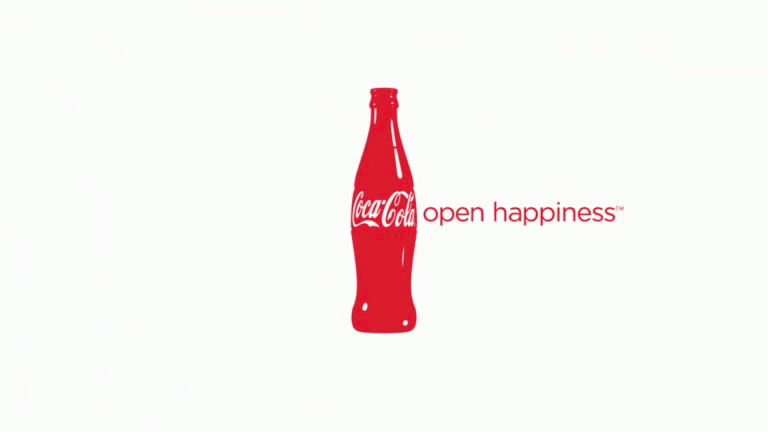Happiness. It’s impossible to define. However, I don’t think it’s a stretch to suggest that we often view happiness – whatever form it comes in – as a destination, as the ultimate fruit of our labours. We tend to think love will bring us happiness rather than happiness will bring us love. I’d also suggest this mindset is a product of the society we live in. Or even that happiness, in our society, is in products. And it is this idea that I want to look at: the idea that consuming makes us happy.
Consumerism lies at the heart of our political economy. It is the driving force our society depends upon. As long as people keep consuming, then products will be sold, jobs will be kept, capital will be generated, we will all live happily every after. You probably know this, but to reiterate for the sake of my arguement: capitalism relies on endless production and endless consumption.
This can cause problems when people have all their base needs – food shelter, clothing, etc – covered, plus some. How to keep us buying? How to sell products that people don’t functionally need? Advertisers were tasked with the problem, and their solution was fairly ingenious.
They moved up Maslow’s hierarchy of needs and sold us the idea that products can meet intangible needs. The top three tiers of the pyramid could easily be gathered together under the term happiness, and advertisers figured out that our intangible desires were far more insatiable than our tangible needs. And so many products have become not things at all, but ideas that, upon acquisition, are said to make us happy. Ideas like: this product will make me cool (Apple), get me the ladies (Lynx deodorant), make me successful (Nike), give me social status (Prada). The implication is that by acquiring these products we will also acquire these qualities, and they will bring us happiness.
This took no small degree of fiction-making on the part of advertisers. The idea, for example, that opening a bottle of Coca-Cola is like “opening happiness” is as powerful as it is fictitious. I call advertising's great leap up Maslow’s pyramid ingenious because it appears contrary to our hyper-rational age. An age that treats the intangible, creative and emotional as less worthy than the rational and scientific. Advertising has done fairly well regardless – a blight on reasons perfect radar, perhaps?
Anyway, the real question is: can products actually make us happy?
There is a fantastic paradox that suggests otherwise. It is this: we are sold the idea of things providing happiness, and yet a fundamental principle of capitalism (endless consumption) relies upon us remaining unhappy. Or, in other words, permanently dissatisfied. While happiness is a destination, capitalism never arrives: it requires endless consuming. Products can never actually provide a lasting sense of fulfilment because then companies would go out business.
But wait, the paradox deepens. Because now it seems the focus of advertising is not lighting the path to happiness but devising more and more elaborate ways of making us unhappy; creating holes that can be filled by an endless supply of new products.
And if we do believe things can make us genuinely happy, we may find ourselves spending more time wanting happiness than being happy. Capitalism is future orientated and similarly, the happiness in buying is always deferred into the future. It always lies waiting in our next purchase. Spiritual guide Eckarte Tolle argued that consuming as a mode self-fullfilment is a “structural wanting” that is internally empty. Products may provide the “filling” but they are interchangeable and transient, partly because businesses have a lot of filling they want us to get through.
Tolle, and Buddhism in general, also argue that happiness never exists within objects themselves. True happiness lies within. It comes from the inside out, not the outside in. And is it not a strange notion, that a feeling arising from inside can be dependent on an object entirely separate from yourself?
The principles of advertising, when you look carefully, support Tolle's assertion. A lot of advertising works by altering our perceptions without altering the product. The happiness I gain from a red sports car is mostly dependent upon my internal perception of the car, not the car in and of itself. Because of this, beauty in objects can change. Take the moment when Volkswagen encouraged us to think small when consumers were thinking big, and a car that was perceived as a dud become an icon. What such advertising victories suggest is that whenever an object makes us happy it come from our perception of the object, not the object itself. From the inside out, not the outside in.
If happiness comes from within, but advertising encourages us to seek it from without, we are caught in a bit of a happiness trap. Zen's solution is non-attachment. To void all attachments and find happiness within ourselves in the moment, rather than searching for it in products or future purchases. I think it’s a sound principle. And it doesn’t mean that we must reject products all together, or never find any pleasure in them. Rather, it suggests we could enjoy them without attachment, without getting caught up in the idea that the products in-and-of themselves make us happy.
And if we could find happiness within ourselves, we might become less dependent on buying things for happiness. This would be particularly useful when the money runs short. We might even become our own advertisers in a way, spinning our own meaning onto all sorts of things, not just the particular things being sold to us. Instead of needing a Coca-Cola to open happiness, we might choose to use a stray paperclip, or a seashell. Advertisers too could remind us to stay present and enjoy the so called iced cream, rather than telling us we need it to be happy. Because meaning and happiness begin within us. Things are a mere afterthought.
Beth Gibson



